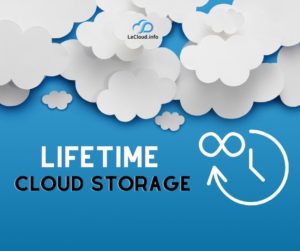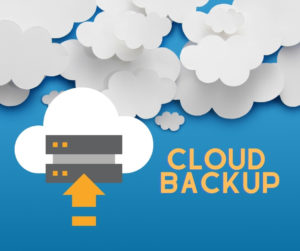If you’re working from home, chances are you might share more than just your documents and spreadsheets with your fellow team members. As the world of the internet is steadily moving away from local storage to remote, we’re seeing a constant rise in a server-based storage system – also known as cloud.
And it’s not just for workers, but equally useful for home consumers, streamers, editors, or anyone in the creative industry.
Mega, a New Zealand-based cloud storage provider is a popular option and holds its mark as the best cloud storage service in the market. It allows you to create a free 20 GB storage account paired with a state-of-the-art encryption system to help protect and secure your data.
But how is it better than other mainstream storage options such as Google Drive and iCloud? And mostly, does it really protect your data or it’s just a marketing term?
In this Mega Review, we’ll look at the good and bad side of this cloud storage solution and list out all the points you should consider before trying it.
Mega Features
Mega is best known for its secure cloud infrastructure. But beyond security, lies a great set of features that will surely impress you to try this platform.
Mega Security and Encryption System
This is where we get a bit technical…
An important reason why Mega attracts a lot of customers is due to its approach to security and zero-knowledge policy. The platform is total, end-to-end encrypted, which means that not even Mega or anyone outside the organization can access it.
All communication with Mega servers is secured with SSL/TLS. The Mega subscriber’s passwords are hashed using the SHA256 code system. A random 128 bits Master Key is provided to the client for retrieval and update. These keys are further encrypted using the AES-ECB system and provided to the customer in a plaintext document.
Mega also prides itself on the UCE (User-Controlled Encryption). All the files and folders stored on Mega are encrypted using AES-128, which is a secure log system used in high-end servers. The post download and upload integrations are checked via CCM.
Furthermore, the company is also GDPR compliant and open-sourced. There are plenty of white papers that you can check on their website.
To sum this up, the cryptographic principles employed by Mega’s Zero-knowledge policy and end-to-end encryption are sound. This means that the user will be able to enjoy high levels of security while dealing with their personal data.
Collaborative Capabilities
Mega has recently introduced a new feature called, MegaChat, that allows you to communicate with your team members in real-time. Instead of using third-party tools to manage your comments, you can send end-to-end encryption with all your team members directly from Mega.
Here, you can add users to your contacts and even start a voice or video call. During conference calls, you can share photos and files as attachments which will be automatically streamlined to your uploads.
Secure File Sharing
File sharing with Mega is super effective and secure. You can create a global link to share with any recipient or create a custom link and add accounts in order. All the files and folders you add in Mega are fully encrypted for security.
In the case of file sharing, an encryption key is also sent to the recipient, though securing the system on both ends. For even more security, you can also enable password-protected files or set expiration dates on files. There are just so many options you can play around with.
Availability Across Platform
Just like any cloud storage system, the Mega interface is super easy and responsive. Mega lets user’s access to its cloud platform via numerous devices such as:
- Browser Interface: Just open the browser of your choice, enter your credentials and start uploading.
- Desktop App: A file-syncing app available for Windows, macOS, and Linux users.
- Extensions: Browser extensions for easy file upload. Compatible with Firefox, Mozilla, and Chrome.
- Mega Mobile App: Dedicated apps for both Android and iOS users. Visit your relevant app store and download the latest application.
- MegaCMD: A Command Line Interface (CLI) for Windows, Mac, and Linux users. Used to interact with WebDAV clients, automate backups, and configure FTP access to Mega files.
No matter what platform you use, the main screen is straightforward and enlists all the latest files and folders you’ve uploaded/used in your account. From the main screen, you can access all the features such as MegaChat, collaboration, etc. The drag and drop interface also makes adding the file to the cloud in a super breeze.
Mega also automatically compresses a larger file when you’re downloading it in your local drive – A very handy feature to save space.
File Versioning
Software conflicts are everywhere, whether it’s because of unwanted edits or file corruption, it’s a real creative’s nightmare. Thankfully, Mega customers, free or paid, can enjoy file versioning.
It is a feature that allows you to revert back your changes to a certain point in time before the accident happens. For example, if you’ve accidentally deleted a file 2 days ago, you can just revert back 2 days and recover your file.
This feature is enabled by default, so there’s no need for you to pay extra or always switch it on.
MEGA Support
Mega offers both a good-sized Help Centre and email support to its clients. The email support is a ticket-based system that promises to answer your queries in 1-2 business days. The Help Center is well organized and answers most of your basic to advanced level questions.
If the answer you’re looking for is not listed, you can fill out the support form and someone from the officials will contact you.
Unfortunately, mega does not offer phone or live chat support.
MEGA Overview – A Generous Choice
Mega strikes a perfect balance between simplicity and features, running on just any platform you can think of today. You can have it run on your desktop browser, you can download the desktop app, or install the native app on your smartphone – there are just so many options.
Any file size can be uploaded and accessed anywhere in the world, as long as you stay within your overall quota (Of course!). With the platform supporting “Version” control, you can easily retrieve your older data and documents without any worry.
Since its launch, the company has served approximately 150 million users and is expected to stretch its horizon to newer limits in 2022. They also have improved a lot over the years, from encrypting their security to introducing new plans in the pricing department – It surely is a treat for both personal and commercial users.
Price and Plans
We’ve already bragged a lot about its free plan, let’s talk about what other options it offers. Mega features two types of pricing plans; Individual and Business. As the name suggests, each one of these packages is further divided into tier-based categories that have storage and transfer rate limitations. Here’s a quick overview of the price plan:
Individual
Perfect for those that want maximum flexibility for their work or personal usage. The individual plans come in 4 different tiers, each divided by its features and storage capacity.
| Package Name | Pro Lite | Pro 1 | Pro 2 | Pro 3 |
| Price | $5.67/mo | $11.35/mo | $22.71/mo | $34.07/mo |
| Storage | 400 GB | 2 TB | 8 TB | 16 TB |
| Transfer/mo | 1 TB | 2 TB | 8 TB | 16 TB |
Additional Services include:
- Auto Backup
- File Versioning
- Private Team Messaging
- Secure Video Conferencing
- Custom Rubbish Bin Cleaner
Business
As the name implies, the plan is designed for those that run an agency or often deal around with a large collection of data. The business plan starts at $17.04/mo for a minimum of 3 users. There’s a business cost calculator listed on Mega official website which you can check and see how much the tool will cost you based on your requirements.
Other than the limits we’ve mentioned, there’s no difference in actual performance. Mega also points out that while they have a transfer limit, the speed itself is the same across all the free and paid subscription plans.
Setup and Recovery Key
Getting started with Mega is super easy. All you have to do is head over to its website, sign up for a free account, and start using its service. If you prefer the free version and think that it’s time for an upgrade, you will be given an option to pay from your credit or debit card.
Unfortunately, mega doesn’t support Paypal, but you can pay with Bitcoin, which is great. Once you have paid for your package, you will be sent a confirmation email upon which on verification you’ll get a recovery/backup key.
Carefully download this recovery key in a safe place and make sure that it’s available to you in case you forget the password. Because Mega follows a zero-knowledge encryption policy, you can’t recover your account in case you lose this key.
From Megaupload to Mega : some reasons to worry?
During the launch, Mega was caught in a bit of a controversy that is still relevant in 2022. So, basically how this started is that Mega was founded by the same person, Kim Dotcom, that created Megaupload.
In case you don’t know, Megaupload was considered a safe haven for pirated content. And it got caught up in a lot of controversies because there was no check and balance when it comes to file sharing. Megaupload, which had 150 million registered members, was on record the “most-hated” list by members’ copyrights.
The indictment claims that the platform lets people upload copyrighted work so that others can download and use it. And despite submitting multiple notices from Digital Millennium Copyright, the company didn’t perform any major action. So, in the end, it got shut down in 2012, one year exactly before Mega was created by the same Kim Dotcom.
In a 2015 interview however, Kim Dotcom claimed that he was not involved with Mega anymore. More importantly, he stated that he did not consider Mega safe for users’ data anymore.
Although Mega has denied this, the controversy has left many users worried.
Mega Alternatives
The Issues with Mainstream Cloud Providers
Why aren’t Google Drive and other mainstream cloud storage systems safe?
Well, they use a military-grade encryption system, but they still own the keys to your data. Meaning that your data might be safe from the world, but it’s not from the hands of the company itself.
This means that the government or any third-party organization can borrow it and use it as much as they like.
It’s that simple!
But then a new solution comes along called End-to-End Encryption (E2EE) where the encryption keys are now owned by you. This is the term you commonly see on social media texting apps (WhatsApp, Viber, etc). But in the cloud world, the term is used as Zero-Knowledge Encryption.
If a cloud-solution service has this, it means that you’re the only one in control of your data and there’s no second key wandering around on the internet.
This is where services like MEGA come along… Because first, they have a zero-knowledge encryption policy, and second, they published all its source code for their clients – Which is super impressive.
You can actually verify everything you’ve done with them, how you’ve done with them, and so on… Trust us, the data is all there in the White papers.
Mega is very well priced as compared to its competitors. An equivalent business plan on other platforms, such as Dropbox will cost $25/month, while Google Drive costs around $17.85/mo.
Sure, the prices fluctuate and by the time you read this article, Dropbox or Google Drive might seem like a cheaper option, but considering the security and privacy features it offers, Mega is a better option.
Pros
- End-to-end Encryption with TLS, AES-128
- Free and Paid Plans
- GDPR complain for all users worldwide
- Massive amount of storage available
- File versioning
- Support Two-factor Authentication
- Annual transparency reports
Cons
- Limited collaboration features
- No live chat or phone support
Mega Review: Final Verdict
Mega has plenty of appeals, certainly among customers who prefer security over anything else. They have a generous 20 GB Free plan that no other cloud storage platform has failed to offer so far.
Having been able to use various apps, with all your data synced together is something Mega brags about – And it’s a good thing. Mega caters to both the absolute beginner and advanced-level users in the cloud storage world.
But if you rely heavily on collaboration, mega lacks some advanced features such as Office suite or real-time editing. For such, users might consider OneDrive, Dropbox, and even Google Drive – All of which are great options but have some security flaws.
That being said, mega has a clean, easy-to-use interface that has proven impressive for many years and will surely do so in the future.





![[Top 2025] The 4 cheapest and most reliable cloud storages starting from 1 TB Comparatif des stockages cloud les moins chers](https://lecloud.info/wp-content/uploads/prices_1-300x300.png)
